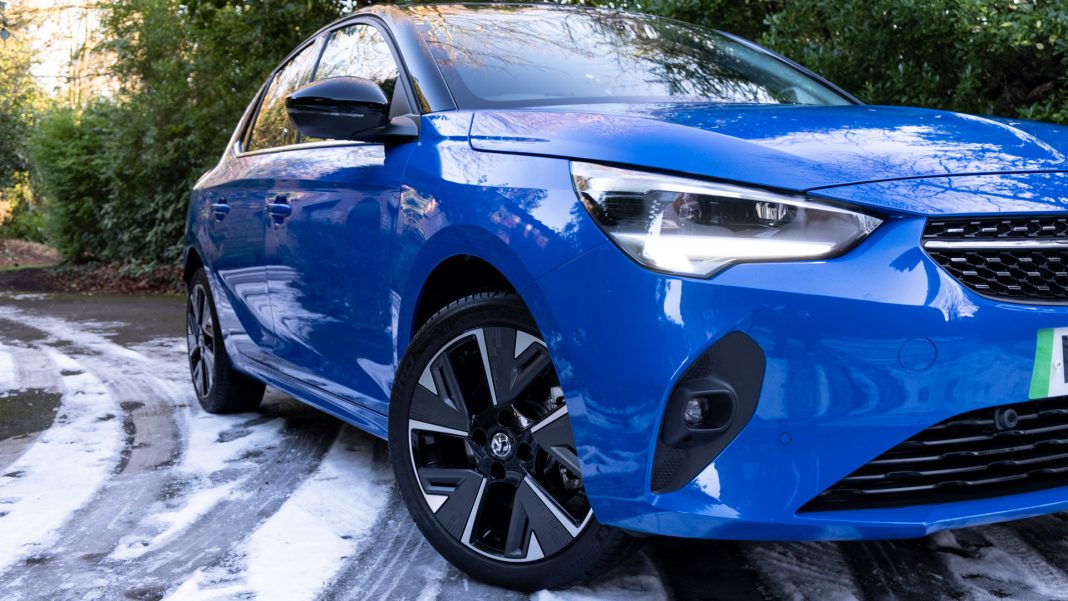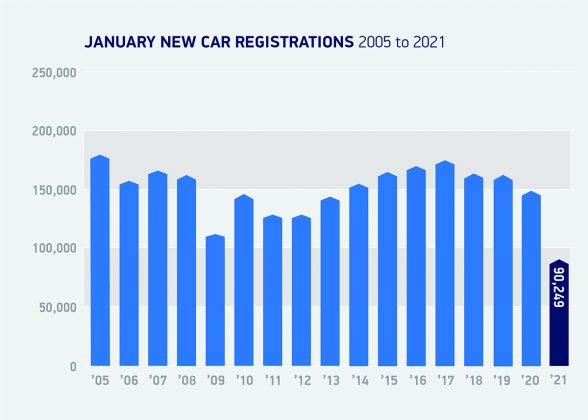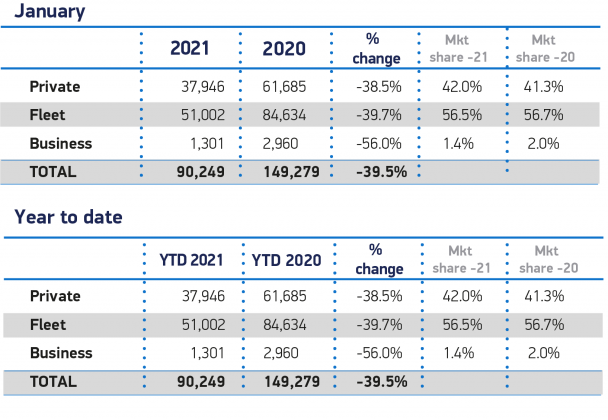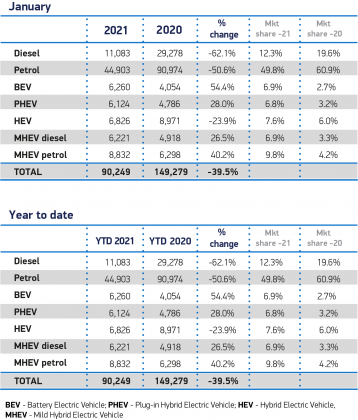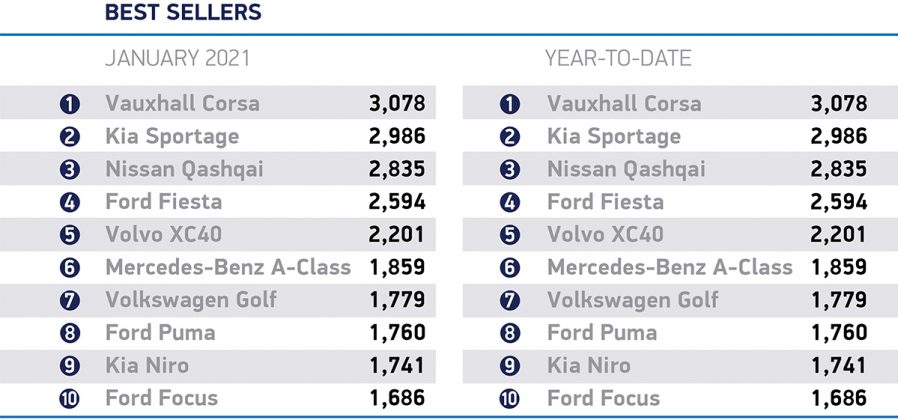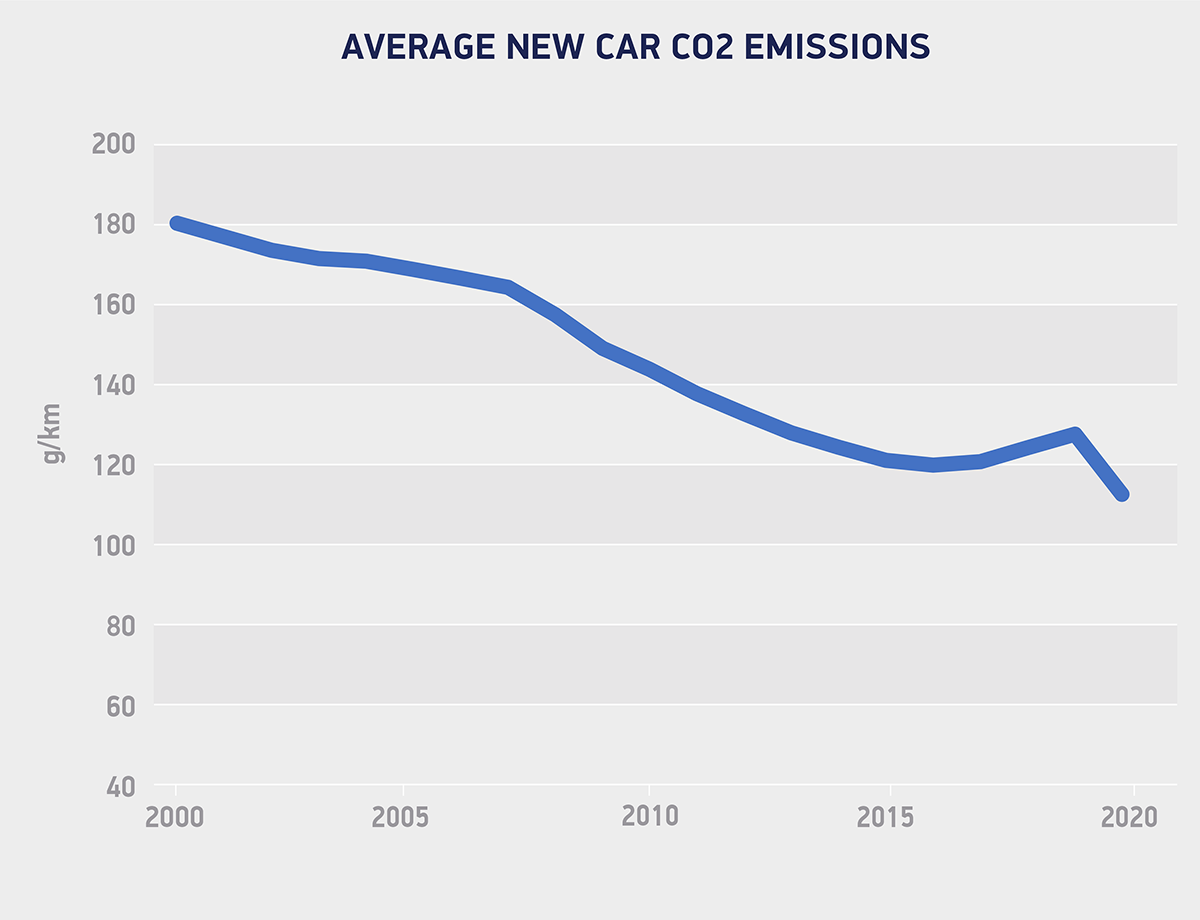EVs were the only ray of light for car dealerships at the start of 2021 as petrol and diesel sales plummeted, according to the latest official figures.
Just 90,429 new cars were registered in January – down 39.5% year on year – with just under 56,000 of those being petrol or diesel. The remaining number, which sat just above 34,000 registrations, were MHEV, BEV, PHEV or HEVs.
The figures, released by the Society of Motor Manufacturers and Traders (SMMT) points out that it is the worst start to the year since 1970 when there were 84,807 new registrations.
Read next: Our favourite inexpensive car phone holders
Demand was down in both the private buying and fleet sectors and the SMTT expects that further drop in sales is set to continue for the next couple of months with a key worry being what will happen in March; a month that traditionally accounts for one in five of new car registrations each year. The SMMT believes lockdown restrictions will still be in place come next month.
However, there are shoots of hope and optimism. Latest SMMT analysis shows that 2020 saw increased uptake of BEV, PHEV and HEVs to the point where they were responsible for almost one in six new car registrations. In fact, more than half of all BEVs registered in the past two decades were registered in 2020 alone.
Here, battery electric vehicles (BEVs) grew by 2,206 units (54.4%) to take 6.9% of the market. Indeed, the number of available EV models almost doubled from 22 in January 2019 to 40 this year. Combined, BEVs and plug-in hybrid vehicles (PHEVs) accounted for 13.7% of new car registrations.
Read next: Volkswagen ID.3 review: The best electric hatchback?
If this does play out as SMTT sees it, it means EVs will play a key role in helping the industry grow by 15.7% compared to 2020’s ‘lost year’.
The report also points out that the increased sales of EVs are going to help play a role in the UK’s roads being carbon neutral. Combined with ongoing improvements to petrol and diesel engines, average vehicle CO2 emissions dropped to 112.8g/km, which marks a reduction of 11.8% compared to 2019 and -37.7% compared to 2000.
The report notes: “While all classes of car have reduced emissions by at least a third since 2000, one of the biggest reductions was achieved in dual purpose cars (-48.8%), aided by increased availability of BEV and other low emission models. Around 30% of dual purpose vehicles are now zero emission-capable, demonstrating their vital role in helping to reduce overall CO2 emissions.”
Mike Hawes, SMMT Chief Executive, said: “Following a £20.4 billion loss of revenue last year, the auto industry faces a difficult start to 2021. The necessary lockdown will challenge society, the economy and our industry’s ability to move quickly towards our ambitious environmental goals.
Buy a car phone mount on Amazon (Affiliate)
“Lifting the shutters will secure jobs, stimulate the essential demand that supports our manufacturing, and will enable us to forge ahead on the Road to Zero. Every day that showrooms can safely open will matter, especially with the critical month of March looming.”

